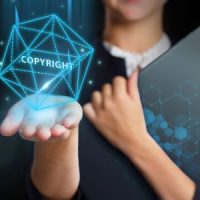Google Wins Big Copyright Case At U.S. Supreme Court

On April 5th, 2021, the Supreme Court of the United States issued a decision in Google LLC v. Oracle America, Inc.—one of the most important copyright law cases in recent years. The nation’s highest court ruled in favor of Google, finding that the company did not violate Oracle’s copyright when it used the Java SE API software interface as a basis for its original Android operating system. In this blog post, our Florida trademark & copyright infringement lawyers highlight the key things that you should know about the decision.
Case Analysis: Google LLC v. Oracle America, Inc.
The Facts
Java is a computer programming language. It was initially created by an employee of the Silicon Valley company Sun Microsystems. In 2009, Sun Microsystem was acquired by Oracle for more than $7 billion. As a result, Oracle obtained ownership of the full portfolio of assets held by Sun Microsystems, including its intellectual property.
When coders at Google were first building the Android operating system, they did so by developing a new computer language that was based on Java SE API. The language that ran the initial versions of the Android operating system (a new language is now being used by Android) relied heavily on many elements of Java.
The Legal Issue
Oracle filed a copyright infringement lawsuit against Google on the grounds that it commercially used the Java software interface without the proper license or legal authorization. For its part, Google countered that its use of Java’s interface fell squarely under the fair use doctrine. The Supreme Court was tasked with answering two essential questions:
- Can a software interface qualify for copyright protection?
- Did Google’s conduct fall under the fair use doctrine?
The Decision and Implications
Writing for a 6 to 2 majority, Justice Stephen Breyer determined that Google’s use of the Java software interface was protected under the fair use doctrine. In writing the opinion, the court presumed that software interfaces could theoretically qualify for copyright protection. In assessing the fair use defense raised by Google, the court considered the following factors:
- The nature of the copyright protected work at issue in the dispute;
- The purpose and character of the defendant’s use; and
- The amount of copyright protected material used by the defendant.
The copyright decision by the Supreme Court has major implications for companies operating in the tech industry. By taking a more expansive view of fair use, the court has granted businesses, entrepreneurs, and tech industry professionals additional security when borrowing elements of previous work in an effort to create new, transformative product or service.
Get Help From a Copyright Infringement Attorney in South Florida
At Perkins Law – Brand Protection, our Florida copyright lawyers represent professionals and companies in the full spectrum of infringement claims. If you have questions about your legal rights or legal options, we can help. Contact our intellectual property attorneys today for a strictly private consultation. We provide copyright law services throughout Palm Beach County, including in Boca Raton, Deerfield Beach, West Palm Beach, Delray Beach, Coconut Creek, and Greenacres.
Source:
supremecourt.gov/opinions/20pdf/18-956_d18f.pdf
